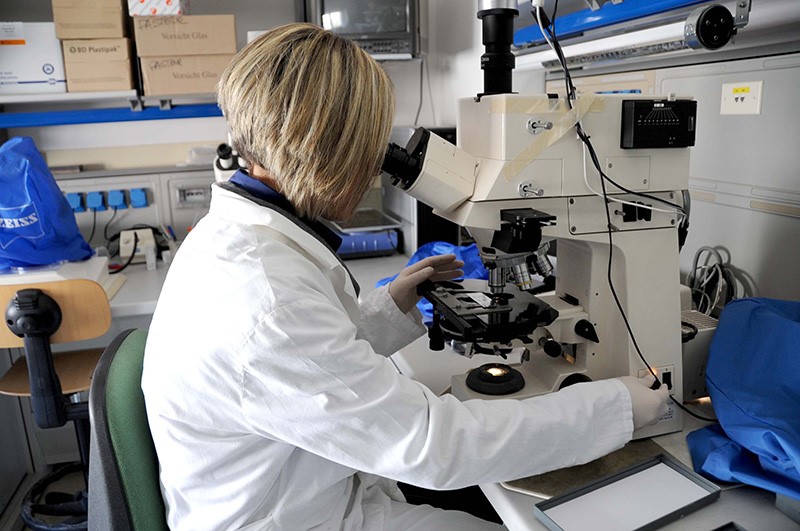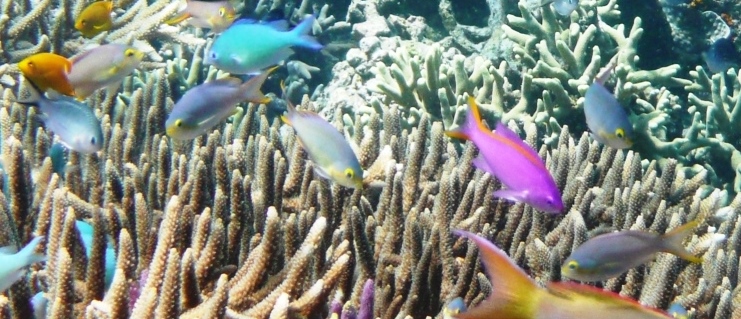Mission
The mission of the Stazione Zoologica is the research of the fundamental processes of biology, which include marine organisms and their biodiversity, in close link with the study of their evolution and the dynamics of marine ecosystems, using an integrated and interdisciplinary approach. The study of the resulting biotechnological applications is part of the mission of SZN.

The research in marine biology, apart from fostering progresses in basic knowledge, have often a biomedical impact. Some illuminating examples are the Nobel Prize for Physiology or Medicine obtained by eminent scientists for their studies on marine organisms. The recent sequencing of the genomes of some marine organisms and the increasing ease of obtaining new ones, the ability to use new methods of so-called reverse genetics and advanced microscopy, open new frontiers of investigation in the field of Biology. In addition, the exploration of biodiversity in the seas is a sector, which will be considered increasingly fundamental for the advances related to the knowledge of basic biological mechanisms, of new bioactive substances and the mechanisms involved in the global climate balances.
Among national and international Research Institutes, the peculiarity of the SZN derives from some key characteristics:
• The co-existence of biological and ecological research, key elements for a comprehension of the overall balance of the marine environment and the basic mechanisms that govern it.
• The capability to benefit of a multidisciplinary approach including genetics, cellular and developmental biology, physiology, ecology and oceanography.
• The capability to explore and develop methodologies and experimental protocols that represent a reference point for important researches transferred in other system and/or organisms.
• The competences on a wide range of organisms, which allow the SZN researchers to face ecological problems by evaluating the biological component in its complexity.
Apart from this specific research activities, the mission of the Stazione Zoologica – in accordance to its tradition – is nowadays to:
• provide access to marine organisms for the international scientific community;
• provide qualified consultancy to public Institutions;
• provide advanced training.
In particular, the ability to develop research activity and at the same time to provide specialized scientific services with a high technological impact and with a multidisciplinary approach, represent the strength of the Stazione Zoologica Anton Dohrn; this characteristic makes the SZN unique among the national research institutes.
Vision
Following the current prescriptions given by the EU Mission Board on Healthy Oceans, Seas, Coastal and Inland Waters, the Mission Starfish 2030 (Restore our Ocean and Waters by 2030) has been proposed. This aims to know, restore and protect our ocean and waters by 2030, by reducing human pressures on marine and freshwater environments, restoring degraded ecosystems and sustainably harnessing the essential goods and services they provide (https://ec.europa.eu/info/publications/mission-starfish-2030-restore-our-ocean-and-waters_en). Inspired by the shape of the starfish, five overarching objectives for 2030 have been identified:
a. Filling the knowledge and emotional gap,
b. Regenerating marine and freshwater ecosystems,
c. Zero pollution,
d. Decarbonizing our ocean, and waters
e. Revamping governance.
These five objectives are mutually supportive and taken together, Mission Starfish 2030 will aim to enable the restoration of the water cycle as a whole. For each of the five objectives, a set of ambitious, realistic and measurable targets have been defined. They specifically address the actors, activities, tools and systems that need to be called upon to reach each objective. These are considered the indispensable components of a holistic approach to systemic change. Conservation efforts should be incorporated within an Ecosystem Based Management framework and should address the entire ocean and water system with a holistic approach, if they are to succeed. The future we must collectively create will be defined by how we perceive ourselves to be in relation to the natural capital of our oceans and waters, guiding the choices we now make.
The 2030 Agenda for Sustainable Development, adopted by the United Nations in 2015, identified 17 Sustainable Development Goals and 169 targets. Goal #14 “Life below water” aims to “Conserve and sustainably use the oceans, seas and marine resources for sustainable development”. The SZN research priorities strongly align to this goal, including other Goals, such as #13 (Climate Action - “Take urgent action to combat climate change and its impacts”).
The Stazione Zoologica achieved rapid growth in terms of personnel over the last 5 years. This trend should continue to be consolidated for the next decade, thus increasing the leading role at national and international level as reference for its expertise in the field of marine science and particularly of marine biology and ecology.
We believe that marine biodiversity is the greatest source of knowledge yet unexplored of the Planet and that further study is required to provide a major contribution to the advancement of human knowledge and acquiring new tools for sustainability.
The development of new technologies and expansion of current approaches allow us to study biodiversity at all levels of organization. The scientific outcomes and continue increase in SZN research capacity will allow to stimulate the growing capacity of turning research into data, and data into knowledge.
The SZN wants to seize this opportunity, challenging the inter-disciplinarity ‘priority’ by enhancing its expertise and further expanding the leading role in a global collaborative network. For the next decade we identify the following Research strategic areas.
SZN Vision for the years 2021-2030
SZN Research Strategic areas for the 2021-2030 decade:
a) Characterization of molecules, structures, physiology, adaptation, threats, resilience of marine organisms and assemblages to explore their capacity to adapt to extreme environments and conditions.
b) Genomics of marine organisms applying an eco-evo-devo integrated approach.
c) Exploration of the mechanisms of macro and micro-evolution from genomes to epigenetics epigenomes, from species to communities integrating different approaches.
d) Exploring and analysis of patterns and processes of marine biodiversity, adopting novel integrated, and holistic approaches.
e) Understanding impact of Global Change through marine observatories for answering to strategic needs.
f) Improve the conservation of marine biodiversity through an ecosystem-based management approach.
g) Exploiting marine organisms’ potential for industry, food and medicine for developing eco-sustainable marine biotechnologies.
h) Supporting the eco-sustainable development of renewable energy resources from the sea.











